Graham Reid | | 6 min read
Kaapi Raagam (live)
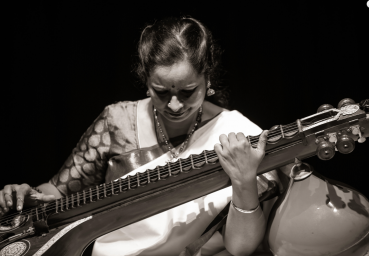
The Indian musician Dr Jayanthi Kumaresh is an internationally acclaimed exponent on the veena, a string instrument so ancient and steeped in mythology that it is associated with Saraswati, the goddess of knowledge, wisdom and music.
Kumaresh is coming to New Zealand again (she played concerts in 2016 and at Womad in 2022, she remembers it being cold) with the extraordinary tabla player Zakir Hussain and violinist Kala Ramnath.
The trio will play in Christchurch and Auckland in late June (details below) presenting a specially written piece Triveni.
Elsewhere caught up with the charming, polite and funny Kumaresh – who has won scores of music and cultural awards in India – when she was back home in Bangalore in the south of India after a concert in Los Angeles before she embarked on another tour to as far afield as Helsinki.
In addition to her performing schedule Kumaresh is also teacher, passing on her knowledge in the way which is so common in India through the gurukulam tradition. One of her projects is the Academy of Veena . . .
That is an online academy which started during the Covid times and has taken off quite well with the students who attend the masterclasses.
Let me ask about your background.
I am basically from Chennai in Tamil Nadu, but for the past 20 years I've been living in Bangalore.
I understand that as young as 3 you wanted to learn veena which was quite unusual in your family.
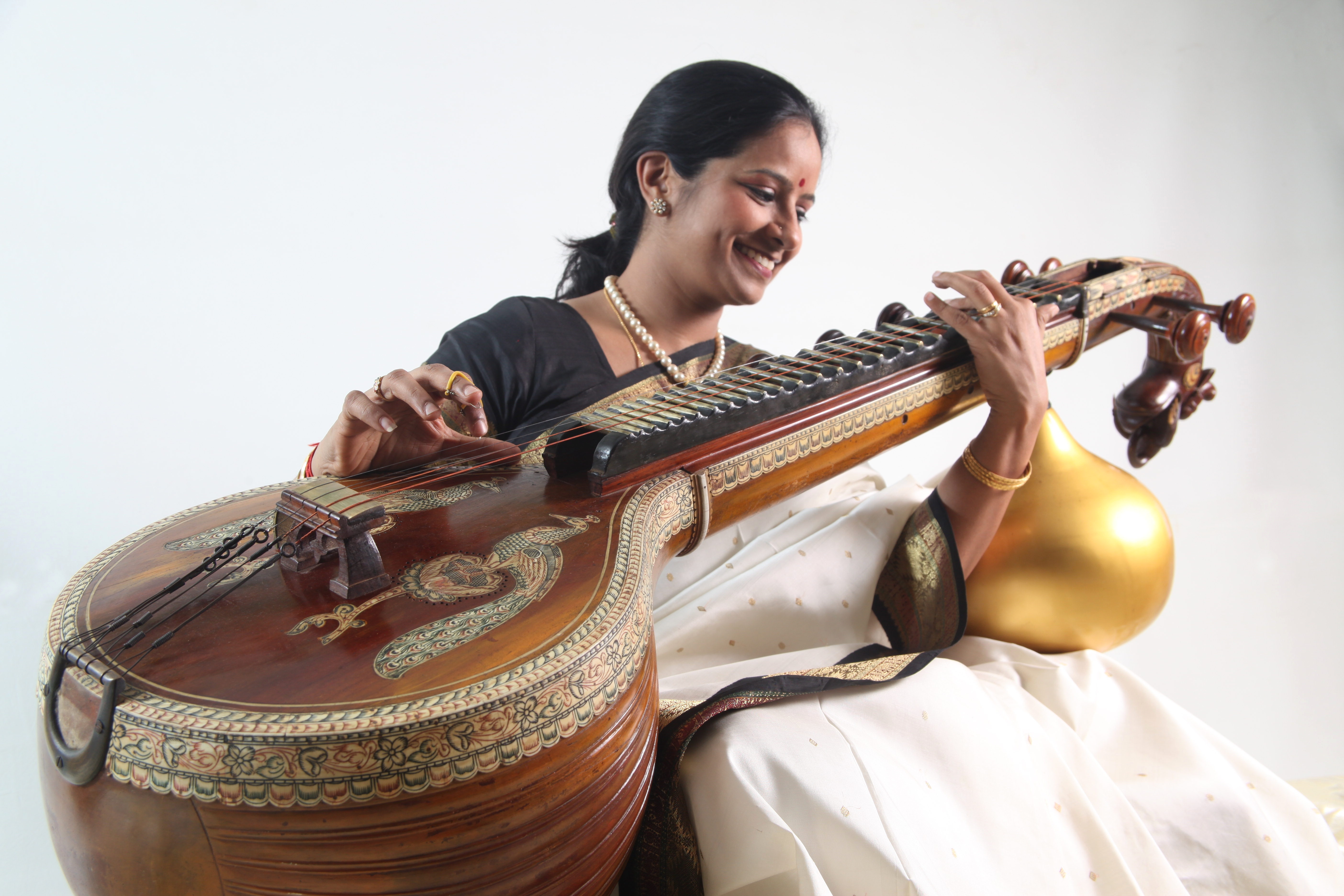 I come from a family of musicians for six generations and pretty much everybody was a violinist: my mother, my sister, grandfather, aunt and uncle.
I come from a family of musicians for six generations and pretty much everybody was a violinist: my mother, my sister, grandfather, aunt and uncle.
In fact my uncle Sri. Lalgudi Jayaraman was a very well know violinist internationally, but there was only one veena player and that was my mother's sister.
So I took after her. My mother probably started me off on the veena but I lived with my aunt who was guiding me.
It's a big instrument for a small child?
Yes, it is a big instrument to play and carry, it's quite big!
I have often felt that the sound of the veena has some of the qualities and range of the human voice.
Absolutely true, also because the design of the instrument is like that of the human body: there are 24 frets which is like the spinal cord and that is the same number of vertebrae, and there is head on one end and at the other end the body. So the veena itself is designed like a human body. So if you think it sounds like a human voice you are very close to the truth.
Is it a common instrument for women to play?
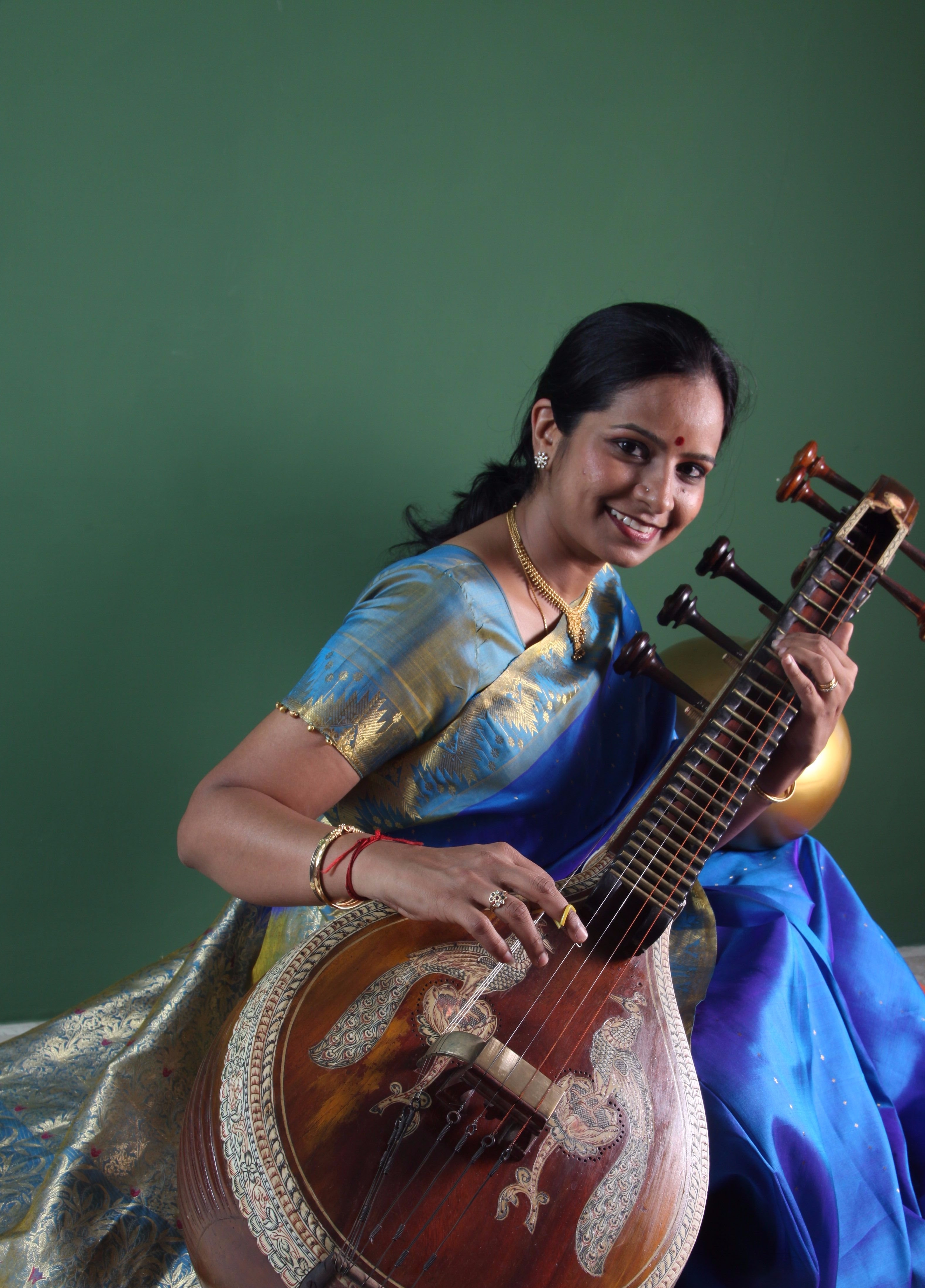 In the south of India, yes. In fact, it is the national instrument of India which is why the goddess of learning Saraswati is always personified with a veena in her hand. It's like the national instrument and many women and men do learn to play it.
In the south of India, yes. In fact, it is the national instrument of India which is why the goddess of learning Saraswati is always personified with a veena in her hand. It's like the national instrument and many women and men do learn to play it.
The thing about the veena is it's nice to have and it is very auspicious and all of that. But to achieve an amount of excellence one needs to work very hard and look beyond the frets.
You play ragas on veena. Are they different from ragas played on, for example, sitar? Is there a different and distinct tradition?
The sitar came to us from the Persian influence and is quite a recent instrument in India, and the ragas and the systems are very different in the sense that they are played differently. The sitar is being held and the veena played horizontally and the octave is very low. But for the sitar the sound is bright, more high frequency.
The frets on a sitar are moveable whereas on the veena they are fixed. We can really pull hard on the frets which are scalloped to give the sound that human-like quality. So that is unique.
The playing technique is that the string arrangement is from the tonic to the lower octave, front to back and in the sitar it is back to front. So there are a lot of differences, but you could say they both come from the lute family.
In terms of music let's just take a raga -- one of my favourite ragas is Raga Rageeshri which I remember hearing Pandit Ravi Shankar play. Could or would you play that on veena.
The approach is different because the music of the veena is Carnatic music [from the South] and the music he played is Hindustani [from the North]. The raga system is the same, but the approach is different.
You did an extraordinary thing, you played live 45 ragas in one session which must be an incredible act of memory if nothing else. So did you play the alapana [opening] section to explore the rag before moving on to the next one.
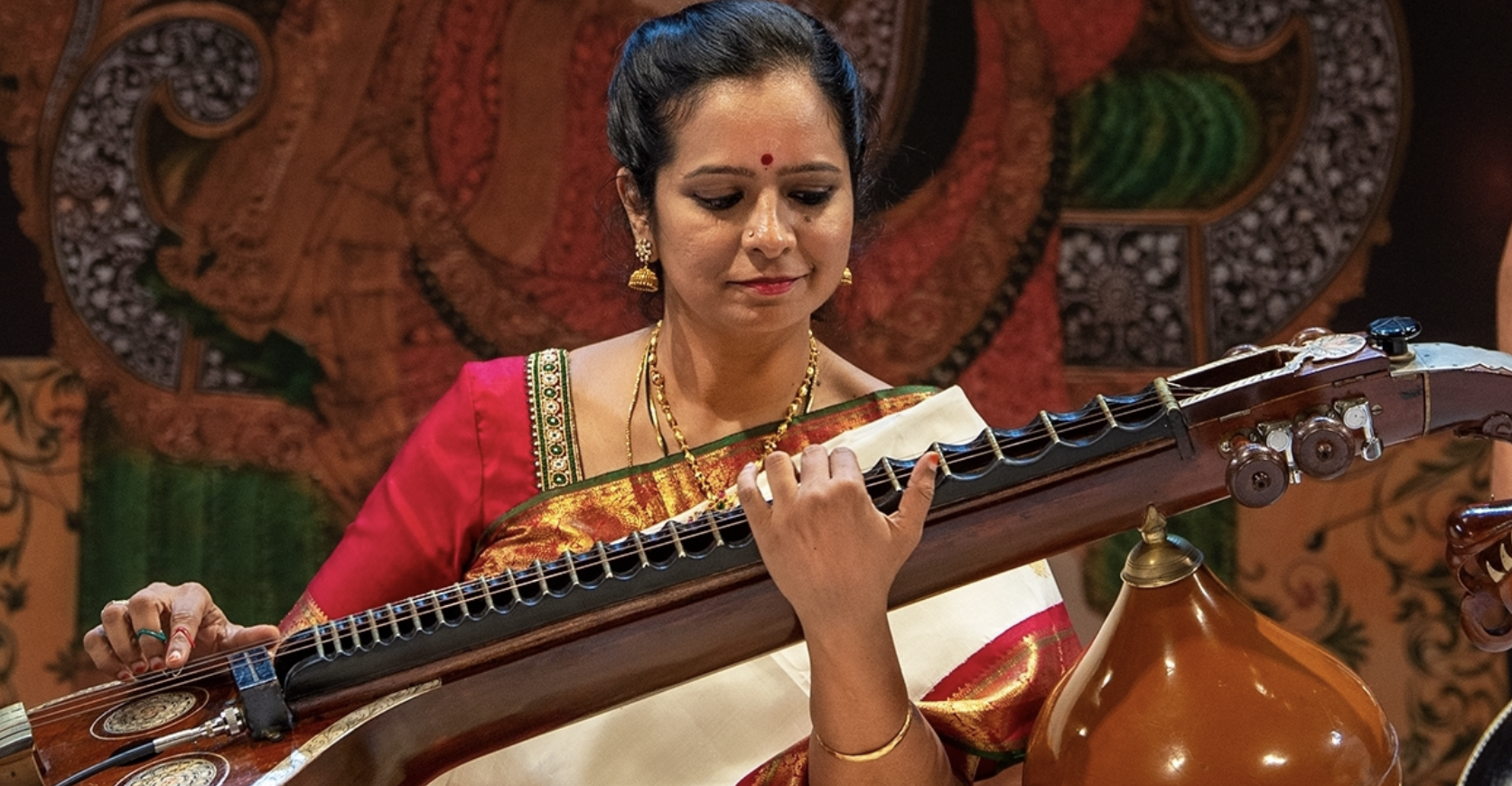 Yes, we started with a raga and built up a bridge which would be common to the next raga, so that bridge would take me to the next. I found what was common in the next raga and played a bit on that and then moved to the next raga and found another bridge.
Yes, we started with a raga and built up a bridge which would be common to the next raga, so that bridge would take me to the next. I found what was common in the next raga and played a bit on that and then moved to the next raga and found another bridge.
That is an extraordinary accomplishment.
Well my guru Dr.S.Balachander did something like that and it was recorded. I wasn't even born when he did that but I found that was quite inspiring and it came out well so I did a few concerts and made a record of it too.
Yesterday I found the recording on iTunes. You seem to set yourself challenges all the time. Do you still have your own group Indian Spice?
Yes, but that is not a very active group because there are seven roles in this which I like to present to show that the instrument is very versatile.
I do my solo concerts and duets with my husband who is a very renown violinist and I do collaborations with other musicians like Kala Ramnath and of course I played the veena in the Indian National Orchestra [which she founded].
But to reach out to the younger generation I have Indian Spice and we do it once in a while for fun when we do a few shows.
With Indian Spice you can go outside of the traditions?
I know what I do but the other instruments are modern: bass guitar and piano and drums, so it's like a world music band. I do it occasionally just to show that the veena is versatile. My guru used to say the instrument has the versatility to do anything so it only we who are playing it who are sometimes bound.
I'm interested in Triveni which is coming here? How did this come about?
This is entirely the concept of Zakir Hussain-ji who is like a mentor for me and Kala Ramnath. It refers to the area in India where three rivers culminate and many people go there and bathe in the holy water, so Triveni is a very special and sacred concept in India.
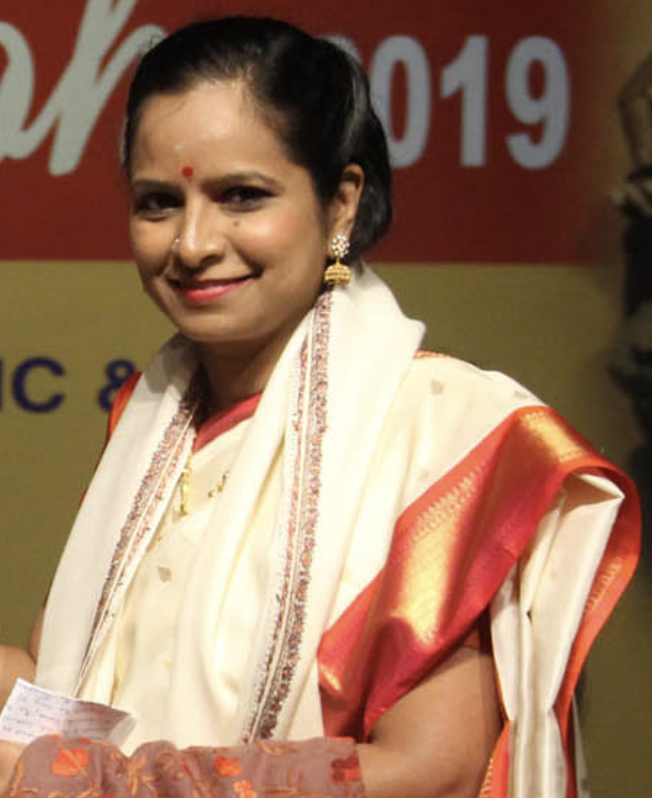 So he tried to bring together three instruments, a melodic instrument from the South and one from the North, and a rhythm [on tabla] which can bind them together. So he created the content for the concert which is like a river flowing to different places and finally joining together.
So he tried to bring together three instruments, a melodic instrument from the South and one from the North, and a rhythm [on tabla] which can bind them together. So he created the content for the concert which is like a river flowing to different places and finally joining together.
There are certain places where the journey stops and you look at the people there and then you keep going. It is like a journey.
We initially did a USA tour of it for about 22 concerts and then a tour in India, then we went to Singapore and now it is coming to New Zealand.
I spoke to Zakir many years ago, I think he was the busiest person I have every spoken with.
Yes, I wonder where he gets his energy! He hasn't changed, he is still the busiest man.
I notice you have recordings of music for high blood pressure and arthritis. Does this relate the fact that the veena is an instrument which has traditionally eradicated sin and evil and has a healing power. How do you see the therapy music working?
There are certain frequencies that calm your nerves and the veena in India is part of a tradition in that it is something all pregnant women listen to. There has been some scientific research into how babies in the womb react to the sound of the veena which is why most pregnant mothers either play the veena or listen to a lot of veena.
It has a good effect on the baby in the womb and when it comes out.
And for blood pressure and calming, the sound of the instrument, and certain rags have a very soothing effect on the psyche and calm you down to give you a very good sleep and a clarity of thought.
This is why veena is used a lot for prayer and auspicious occasions in people's lives.
.
Triveni by Zakir Hussain, Jayanthi Kumaresh and Kala Ramnath: Christchurch Town Hall, Christchurch, June 27; Kiri Te Kanawa Theatre, Aotea Centre, Auckland June 29

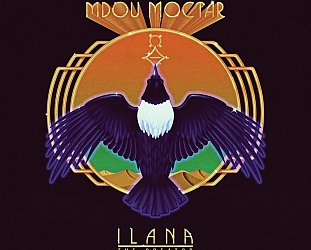
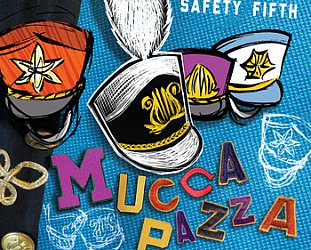
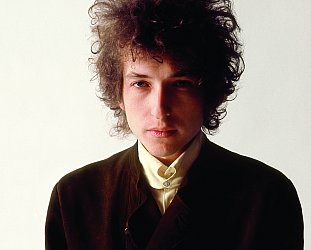
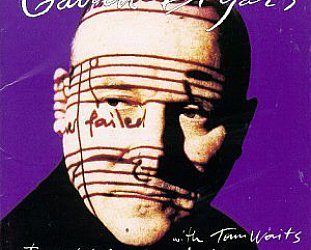
post a comment